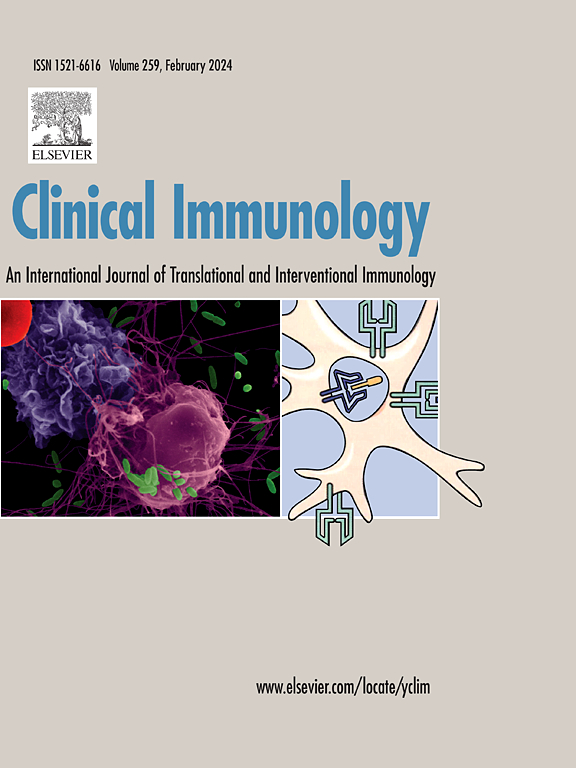The role of immune cells glycolysis in neuroinflammation secondary to intracerebral hemorrhage
IF 3.8
3区 医学
Q2 IMMUNOLOGY
引用次数: 0
Abstract
Intracerebral hemorrhage (ICH) is the most lethal subtype of stroke, making the effective prevention and treatment of inflammatory secondary injury crucial. Recently, the role of immune cell metabolism in ICH has gained attention, particularly the regulatory mechanisms of glycolytic reprogramming in neuroinflammation. This review explores how glycolysis activation in peripheral immune cells (including neutrophils, macrophages, T cells, and natural killer cells), central immune cells (microglia), and other glial cells (including astrocytes and oligodendrocytes) involved in immune regulation influences the inflammatory response following ICH. We analyze the metabolic shifts in glycolysis within these immune cells, highlighting its dual role in neuroinflammation: glycolysis not only provides rapid energy to immune cells, which can either promote or inhibit inflammation, but lactate—a glycolysis byproduct—can modulate inflammatory damage by altering pH and immune cell function. Furthermore, we explore the therapeutic potential of targeting glycolysis in immune cells for neuroinflammation treatment. A deeper understanding of the glycolytic mechanism in ICH may facilitate the development of clinical therapeutic strategies targeting metabolism.

免疫细胞糖酵解在脑出血继发神经炎症中的作用
脑出血是脑卒中最致命的亚型,因此有效预防和治疗炎症性继发性损伤至关重要。近年来,免疫细胞代谢在脑出血中的作用引起了人们的关注,特别是糖酵解重编程在神经炎症中的调节机制。本文综述了参与免疫调节的外周免疫细胞(包括中性粒细胞、巨噬细胞、T细胞和自然杀伤细胞)、中枢免疫细胞(小胶质细胞)和其他胶质细胞(包括星形胶质细胞和少突胶质细胞)的糖酵解激活如何影响脑出血后的炎症反应。我们分析了这些免疫细胞中糖酵解的代谢变化,强调了它在神经炎症中的双重作用:糖酵解不仅为免疫细胞提供快速能量,可以促进或抑制炎症,而且乳酸-糖酵解的副产物-可以通过改变pH值和免疫细胞功能来调节炎症损伤。此外,我们探索靶向免疫细胞糖酵解治疗神经炎症的治疗潜力。对脑出血中糖酵解机制的深入了解可能有助于开发针对代谢的临床治疗策略。
本文章由计算机程序翻译,如有差异,请以英文原文为准。
求助全文
约1分钟内获得全文
求助全文
来源期刊

Clinical immunology
医学-免疫学
CiteScore
12.30
自引率
1.20%
发文量
212
审稿时长
34 days
期刊介绍:
Clinical Immunology publishes original research delving into the molecular and cellular foundations of immunological diseases. Additionally, the journal includes reviews covering timely subjects in basic immunology, along with case reports and letters to the editor.
 求助内容:
求助内容: 应助结果提醒方式:
应助结果提醒方式:


